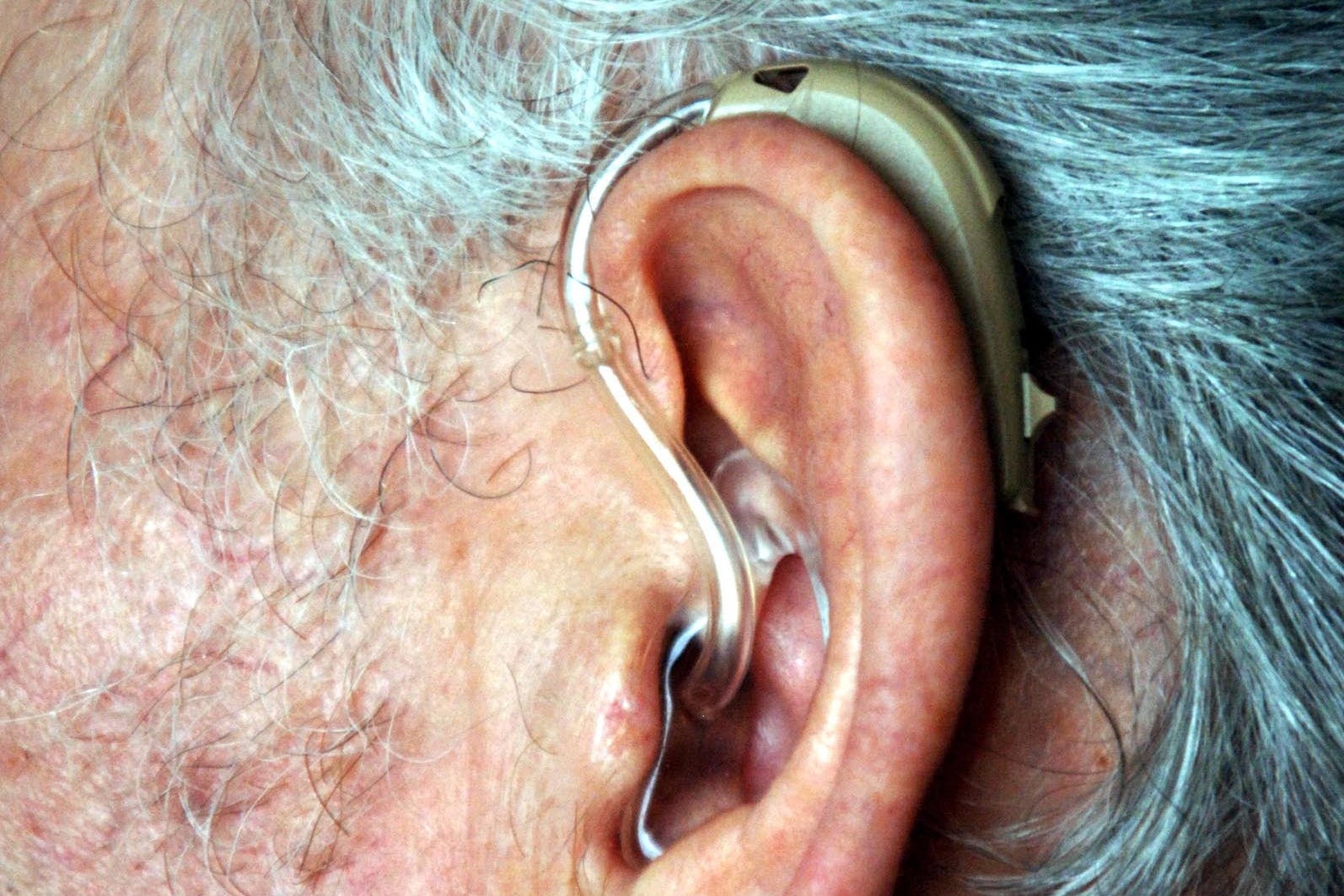Hearing aid use linked to lower dementia risk, study suggests
Research was carried out in Denmark from 2003 to 2017 and included more than 500,000 people.

Your support helps us to tell the story
From reproductive rights to climate change to Big Tech, The Independent is on the ground when the story is developing. Whether it's investigating the financials of Elon Musk's pro-Trump PAC or producing our latest documentary, 'The A Word', which shines a light on the American women fighting for reproductive rights, we know how important it is to parse out the facts from the messaging.
At such a critical moment in US history, we need reporters on the ground. Your donation allows us to keep sending journalists to speak to both sides of the story.
The Independent is trusted by Americans across the entire political spectrum. And unlike many other quality news outlets, we choose not to lock Americans out of our reporting and analysis with paywalls. We believe quality journalism should be available to everyone, paid for by those who can afford it.
Your support makes all the difference.Using hearing aids could delay the onset and progression of dementia, research suggests.
Experts said further work to better understand the link between hearing loss and dementia risk “has never been more important”.
The study by Danish academics comprised 573,088 people aged 50 years and older and was conducted in southern Denmark between January 2003 and December 2017.
Hearing loss has been suggested as a risk factor for dementia, researchers said, with potential factors including the reallocation of brain resources to process sound, hampering other cognitive processes, as well as a decline in social interaction and stimulation due to hearing loss.
The team found hearing loss was associated with a 7% higher risk of dementia.
However, people who had hearing loss and did not use hearing aids were associated with a 20% risk, compared to 6% among people who had hearing loss and used the devices.
Researchers said “although the clinical relevance of these findings is still unclear, the study results suggest that treatment of hearing loss with hearing aids may be associated with reduced risk of dementia”.
They added that this “calls for a better understanding of the association between hearing loss and dementia as a critical step for the development of prevention strategies”.
Further research is needed to help us better understand this link, and with around one million people now affected by dementia in the UK, and 12 million people estimated to have some type of hearing loss, this has never been more important
Gill Livingston, a professor of psychiatry of older people at University College London (UCL), said: “The consistency of this evidence means that this is very important in the real world.
“Prevention is more important than cure and being able to hear also improves functioning and quality of life without toxic effects which drugs may have.”
Dr Leah Mursaleen, head of clinical research at Alzheimer’s Research UK (ARUK), said the findings, published in the journal JAMA Otolaryngology–Head & Neck Surgery, add to “the growing evidence that losing your hearing increases your risk of dementia”.
She added: “Although the effects of using hearing aids are notoriously difficult to unravel, because researchers cannot be sure if people use them consistently, there is building evidence suggesting that using them can help reduce the impact of hearing loss on dementia risk.
“Further research is needed to help us better understand this link, and with around one million people now affected by dementia in the UK, and 12 million people estimated to have some type of hearing loss, this has never been more important.”
Dr Mursaleen said dementia and hearing loss are “not an inevitable part of ageing and early intervention is crucial”.
Alzheimer’s Research UK has urged the Government to include a hearing check in the NHS Health Check for people over 40.
“This could help millions identify hearing issues sooner, and potentially reduce the risk of dementia,” she added.
The importance of regular hearing assessments across the adult lifespan cannot be underestimated
Dr Sarah Bauermeister, associate professor, senior scientist and senior data manager at Dementias Platform UK at the University of Oxford, said: “Only by using such large longitudinal studies can we really start to investigate these causative relationships which show change over time.
“We need to understand the biological mechanisms of the association and it is still possible that it is due to associated factors, such as social isolation.
“However, future clinical studies are required to understand the difficulties of wearing hearing aids in people with cognitive impairment and dementia, a focus of our own programme of work at Dementias Platform UK (DPUK), funded by ARUK.
“Also, the importance of regular hearing assessments across the adult lifespan cannot be underestimated. Destigmatising hearing aid use may also be an important outcome of regular testing.”